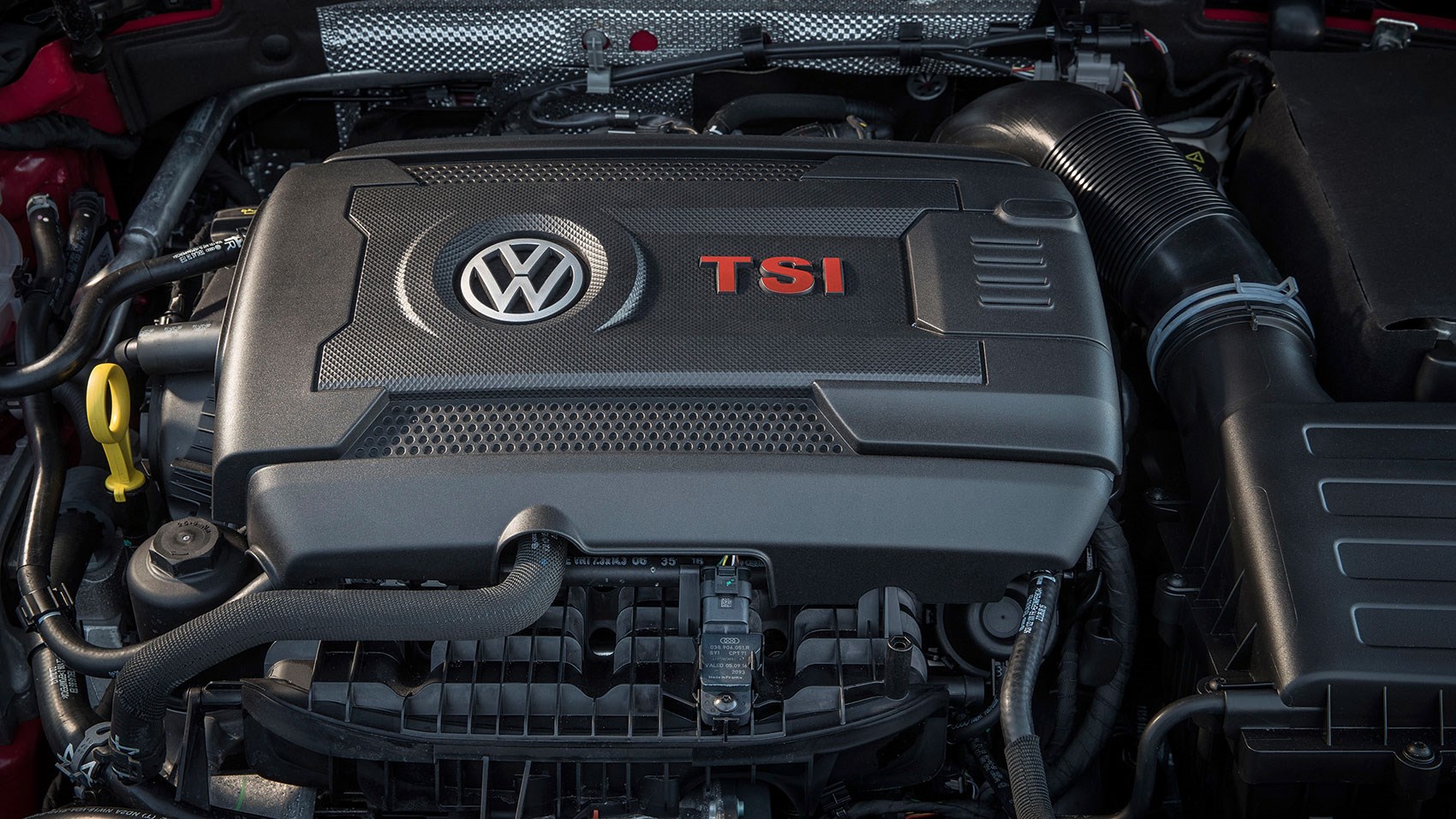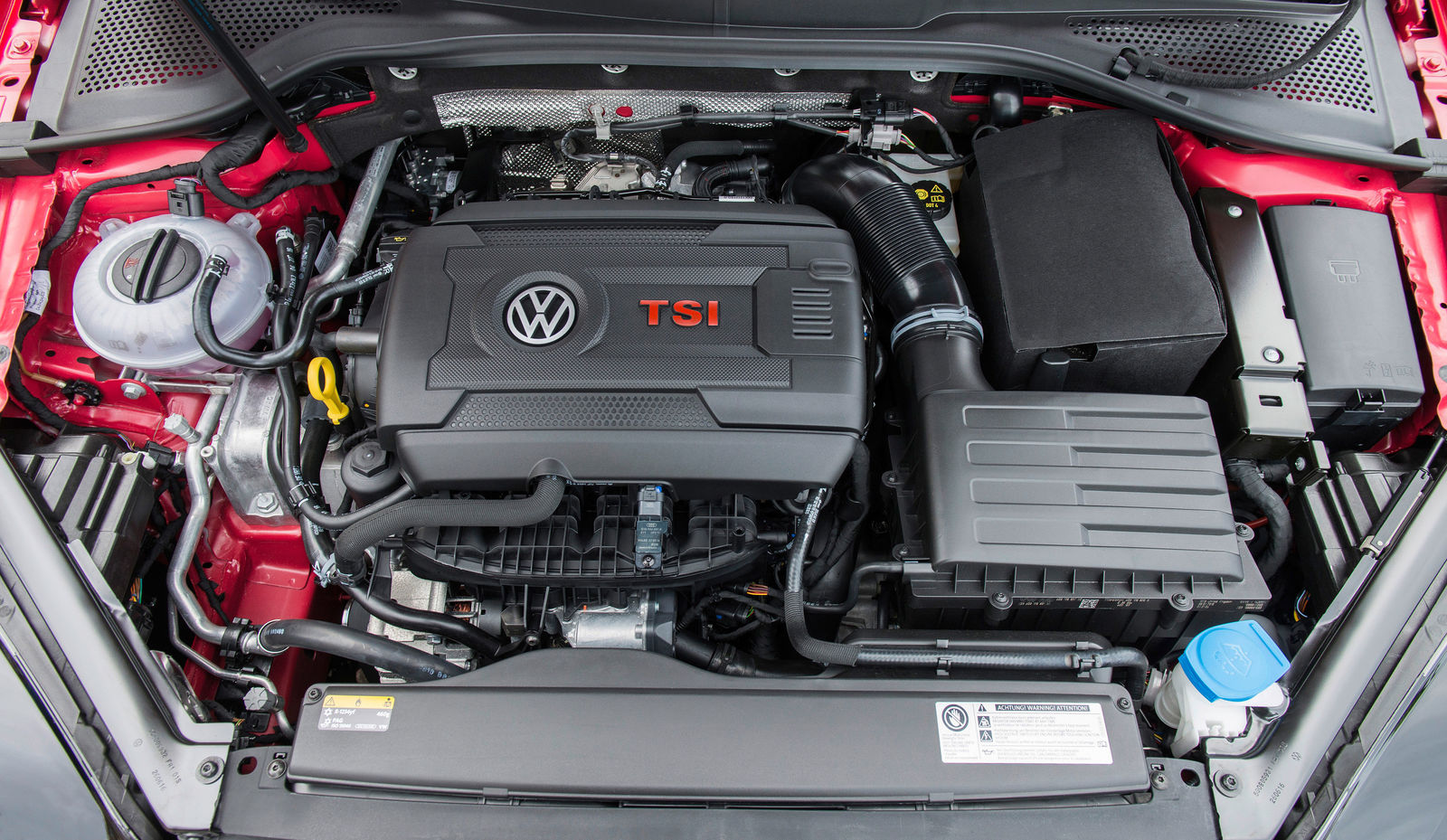How the Golf 7 GTI Engine Delivers Power and Efficiency for Enthusiasts
How the Golf 7 GTI Engine Delivers Power and Efficiency for Enthusiasts
Blog Article
Your Guide to the Golf 7 GTI Engine: Reliability and Upgrades
The Golf 7 GTI, geared up with its 2.0-liter turbocharged inline-four engine, stands for a balance of efficiency and reliability that attract enthusiasts and everyday chauffeurs alike. Understanding the elements that add to its reliability, along with possible problems and their options, is vital for maximizing the driving experience. Discovering different performance upgrades can significantly improve both power and effectiveness. However, the inquiry remains: what specific upgrades can change your GTI into a really extraordinary car while guaranteeing its long life?
Overview of the Golf 7 GTI Engine
The heart of the Golf 7 GTI is its 2.0-liter TSI engine, a turbocharged four-cylinder that provides an impressive mix of power and efficiency. This engine generates a robust 220 horse power and 258 lb-ft of torque, allowing the car to increase from 0 to 60 mph in just 5.6 secs, showcasing its stylish personality. The turbocharged design not only improves efficiency but likewise optimizes fuel effectiveness, making it a sensible choice for everyday driving.
Including advanced innovation, the engine includes direct fuel injection, which enhances burning performance and reduces discharges. Additionally, the Golf 7 GTI is furnished with either a six-speed guidebook or a six-speed DSG dual-clutch transmission, providing chauffeurs with the versatility to pick their favored driving style. The lorry's front-wheel-drive format, incorporated with a well-tuned suspension, ensures nimble handling and a responsive driving experience.
Engine Dependability Aspects
Integrity is an essential element of any performance-oriented car, and the Golf 7 GTI's engine is no exception. Several elements add to the general dependability of this extremely concerned powerplant, which is vital for both everyday driving and spirited performance.
Firstly, the Golf 7 GTI is furnished with a robust 2.0-liter turbocharged inline-four engine, recognized for its efficient layout and solid engineering. This engine includes a created steel crankshaft and light weight aluminum engine block, which supply superior stamina and resilience while lowering weight.
Second of all, regular upkeep plays a vital duty in improving engine integrity. Following the maker's recommended service periods, making use of premium lubricating substances, and replacing necessary parts such as spark filters and plugs can considerably expand engine life.
Furthermore, the high quality of gas made use of can also impact dependability. Premium gas is advised to make certain optimal performance and lessen the threat of knocking or ignition.
Lastly, the automobile's digital monitoring system continuously keeps track of engine specifications, permitting for real-time changes to maximize efficiency and performance while guarding versus possible concerns. Jointly, these factors underscore the Golf 7 GTI engine's reputation for integrity amongst fanatics and day-to-day vehicle drivers alike.
Usual Concerns and Solutions
The Golf 7 GTI, while commemorated for its efficiency, is not without its challenges. Among one of the most regularly reported concerns are engine oil usage and turbocharger failures, which can considerably affect car dependability. Comprehending these typical problems and their solutions is essential for keeping optimum engine performance.

Engine Oil Intake
While lots of enthusiasts value the performance of the Golf 7 GTI, engine oil intake can become a noteworthy concern. Proprietors might discover that their vehicles need more regular oil top-ups than expected, frequently associated to various aspects inherent in the engine's style and operation.
One typical concern is the engine's direct fuel shot system, which can lead to boosted oil consumption because of the burning process. Furthermore, the usage of high-performance driving practices can exacerbate oil burn-off, specifically under hostile throttle conditions. Motorists might also experience oil leaks from gaskets and seals, which can contribute to lowered oil levels.
Routine oil changes using high-quality synthetic oil can aid keep optimum engine efficiency and long life. If too much usage continues, it may be advisable to consult a specialist service technician to examine the engine for possible inner issues, such as worn piston rings or shutoff seals.
Turbocharger Failings
Turbocharger failings can considerably influence the performance of the Golf 7 GTI, leading to lessened power and effectiveness. Oil leaks often stem from used seals or damaged gaskets, which can lead to oil contamination and subsequent engine damages.
Another widespread problem is wastegate failing, which can cause overboost or underboost conditions. This not just influences the vehicle's efficiency yet can likewise bring about major engine damages if left unchecked. Upgrading to an extra robust wastegate can enhance integrity and efficiency.
Excessive shaft play indicates wear in the turbocharger's bearings, which can lead to a full turbo failing. Keeping track of increase stress and paying attention for unusual noises can aid discover this issue early.
To protect against turbocharger failures, regular maintenance, consisting of oil adjustments and air filter substitutes, is essential. Furthermore, buying top quality aftermarket elements may supply better integrity and efficiency, ultimately enhancing the driving experience of the Golf 7 GTI.
Performance Upgrades to Consider
What performance upgrades can truly elevate the driving experience of a Golf 7 GTI? To release the full capacity of this renowned hot hatch, a number of targeted adjustments can improve power, dealing with, and general driving pleasure.
Among one of the most reliable upgrades is a high-performance turbocharger. Changing the stock system with an aftermarket choice can considerably enhance horsepower and torque, delivering an extra electrifying acceleration experience. Complementing this upgrade with an efficiency intercooler aids preserve ideal temperatures, ensuring consistent power shipment.
Next, consider upgrading the exhaust system. A less restrictive exhaust not only boosts engine performance however also produces an extra aggressive sound that amplifies the auto's flashy personality. Combining this with a remapped ECU will maximize gas delivery and ignition timing, more improving performance.
Suspension upgrades, such as flexible coilovers, can enhance handling by decreasing the automobile's center of mass and minimizing body roll. Furthermore, a collection of high-performance tires will certainly improve grip, permitting for sharper cornering and enhanced overall security.
Together, these upgrades can change the Golf 7 GTI into an extra exhilarating and vibrant driving device, making every trip an extraordinary experience. golf 7 gti engine.
Suggested Upkeep Practices
Preserving the Golf 7 GTI engine calls for attention to vital practices that make certain optimal efficiency and long life. Routine oil changes are crucial for engine health and wellness, while prompt timing belt replacement is important to prevent prospective failings. Executing these upkeep techniques will aid keep your automobile running efficiently and efficiently.
Routine Oil Adjustments
Regular oil changes are necessary for the optimum performance and durability of the Golf 7 GTI's engine. Preserving a regular oil change schedule makes sure that the engine runs find this efficiently and efficiently. The recommended interval for oil modifications is commonly every 5,000 to 10,000 kilometers, depending on driving problems and the sort of oil utilized.
Making use of high-quality synthetic oil is important as it gives premium lubrication and thermal security contrasted to conventional oils. This is especially crucial for the Golf 7 GTI, which features a turbocharged engine that creates higher operating temperatures. Routine oil see here now modifications assist to eliminate pollutants and sludge accumulation, which can jeopardize engine efficiency and lead to early wear.
Moreover, fresh oil boosts gas performance and lowers unsafe exhausts, adding to a cleaner setting. Throughout the oil modification procedure, it is likewise recommended to replace the oil filter to ensure optimum purification and protect against any type of debris from entering the engine. Complying with these techniques not just assists preserve the engine's integrity yet additionally protects the value of the vehicle, making normal oil alters an important aspect of liable GTI ownership.
Timing Belt Replacement
The timing belt is a crucial part of the Golf 7 GTI's engine, liable for synchronizing the turning of the crankshaft and camshaft. This synchronization is crucial for ideal engine performance and performance. If the timing belt fails, it can bring about disastrous engine damage, making prompt replacement crucial.

When intending a timing belt replacement, it is advisable to additionally replace the water pump and tensioner. These parts function in conjunction with the timing belt and usually experience comparable wear, ensuring optimum performance and long life. Utilizing OEM components is suggested for their integrity and compatibility with the Golf 7 GTI's engine.
Expert installment is extremely urged, as incorrect installation can cause severe engine malfunctions. Normal maintenance of the timing belt not just protects the stability of the engine but likewise boosts the overall driving experience of the Golf 7 GTI. golf 7 gti engine. Prioritizing this job helps preserve lorry dependability and efficiency over time
Aftermarket Parts and Alterations
Various lovers transform to aftermarket parts and adjustments to improve the efficiency and visual appeals of the Golf 7 GTI. These upgrades can dramatically improve the car's responsiveness, taking care of, and overall driving experience. Popular modifications include high-performance air consumptions, exhaust systems, and intercoolers, which can raise horsepower and torque by optimizing air intake and exhaust circulation.
Suspension upgrades are also widespread, with choices ranging from lowering springtimes to fully adjustable coilover sets that improve adventure top quality and cornering capability. Upgraded brakes, including performance pads and rotors, can offer much better quiting power, making certain safety and security and control during perky driving.
Aesthetic modifications, such as aftermarket wheels, body sets, and personalized lights, permit proprietors to individualize their vehicles while maintaining a sporty appearance. Engine adjusting, whether via ECU remapping or standalone engine monitoring systems, can open added efficiency possibility, making the GTI much more exhilarating to drive.
While aftermarket modifications can generate substantial advantages, it's vital to pick trustworthy brand names and think about the prospective impact on warranty and reliability. Proper installation and adjusting are vital to make sure the durability of the vehicle while enjoying the improvements.
Enhancing Gas Efficiency
Improving gas performance in the Golf 7 GTI can cause significant price financial savings and a decreased environmental influence. Accomplishing better gas economic climate requires a mix of driving routines, maintenance techniques, and critical modifications.
One reliable technique is adopting a smooth driving design, preventing quick acceleration and heavy stopping, which can significantly reduce gas consumption. Preserving ideal tire stress is additionally important; under-inflated tires can increase moving resistance, leading to reduced efficiency. Routine maintenance, including engine adjusting and air filter replacements, makes sure that the engine operates at peak efficiency, further improving gas economic climate.
For those looking for upgrades, consider an efficiency song that focuses on performance instead of sheer power. Eco-mode setups, if available, can readjust throttle reaction and change factors to optimize gas savings. Furthermore, light-weight aftermarket wheels can reduce weight and enhance performance without compromising performance.
Finally, using wind resistant improvements, such as a front splitter or rear looter, can decrease drag at greater rates, adding to far better fuel economic climate. By applying these techniques and alterations, Golf 7 GTI owners can take pleasure in boosted gas performance while maintaining the car's spirited driving attributes.
Final Thought
In final thought, the Golf 7 GTI engine exemplifies a mix of efficiency and dependability, driven by a well-engineered 2.0-liter turbocharged inline-four. Various efficiency upgrades and aftermarket alterations can improve driving experience while maintaining stability.
The Golf 7 GTI, geared up with its 2.0-liter turbocharged inline-four engine, stands for an equilibrium of performance and reliability that allures to lovers and everyday vehicle drivers alike. Regular oil changes making use of high-grade synthetic oil can help keep optimum engine efficiency and longevity.Normal oil modifications are important for the optimum performance and longevity of the Golf 7 GTI's engine. Routine servicing, consisting of engine tuning and air filter substitutes, ensures that the engine runs at peak performance, better improving gas economic climate.

Report this page